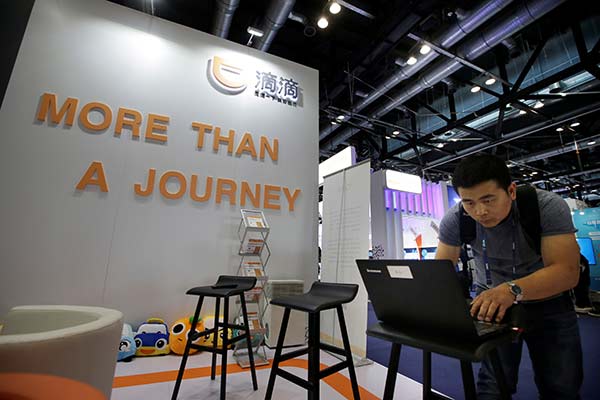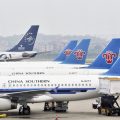
Ride-hailing firm to use funds for fleet expansion amid competition
Didi Chuxing, China’s largest ride-hailing company, plans to raise 10 billion yuan ($1.6 billion) through an issuance of asset-backed securities, to help car-leasing companies on its platform to procure new vehicles.
The Beijing-based company announced on Monday that the plan has received a no-objection letter from the Shanghai Stock Exchange.
The move is part of Didi’s broad push to expand its transportation capacity amid competition from new entrants such as Meituan Dianping.
Didi said the size of the planned issue is 300 million yuan, and said it was the first asset-backed securities issue supporting the new transportation supply chain finance economy in China.
“The plan is collateralized by the leasing claims by car-rental companies when leasing cars to drivers. We will act as a proxy of the originators, responsible for the coordination of leasing companies, and issue bonds through bundling the underlying assets to the capital market,” Didi said in a statement.
The Shanghai Stock Exchange said in a statement that the asset-backed securities issue is a key step in leveraging the supply chain finance requirements of the ride-hailing company.
Didi’s online platform currently boasts more than 21 million drivers, 450 million passengers, car leasing companies and automobile dealers, delivering more than 25 million rides per day. The company also helps mitigate urban transportation pressure by mobilizing vehicle resources.
Lu Zhenwang, CEO of Wanqing Consultancy in Shanghai, said such a sprawling presence in the transportation sector will help Didi to play a pivotal role in enabling other car-leasing enterprises to raise funds.
“The move also highlights Didi’s ambitions in the rapidly growing auto-finance sector. The plan can help its partner leasing companies acquire new funding channels and inject a new impetus to the car-hailing industry to better meet the robust public transportation demand,” Lu said.
The move also came amid a drop in the number of drivers on Didi’s platform after a government policy in 2016 set a string of requirements such as which types of cars can be used for ride-hailing businesses.
Boosting transportation capacity is also one of the keys to ward off competition from new entrants in the sector, such as Meituan Dianping, which has branched into ride-hailing businesses from meal-ordering.
Meituan Dianping said its car-calling services will be available by the end of this month.
Didi said in December that it had raised $4 billion to support its overseas expansion. In January, it bought a controlling stake in 99, a major ride-hailing company in Brazil, South America’s largest economy.


